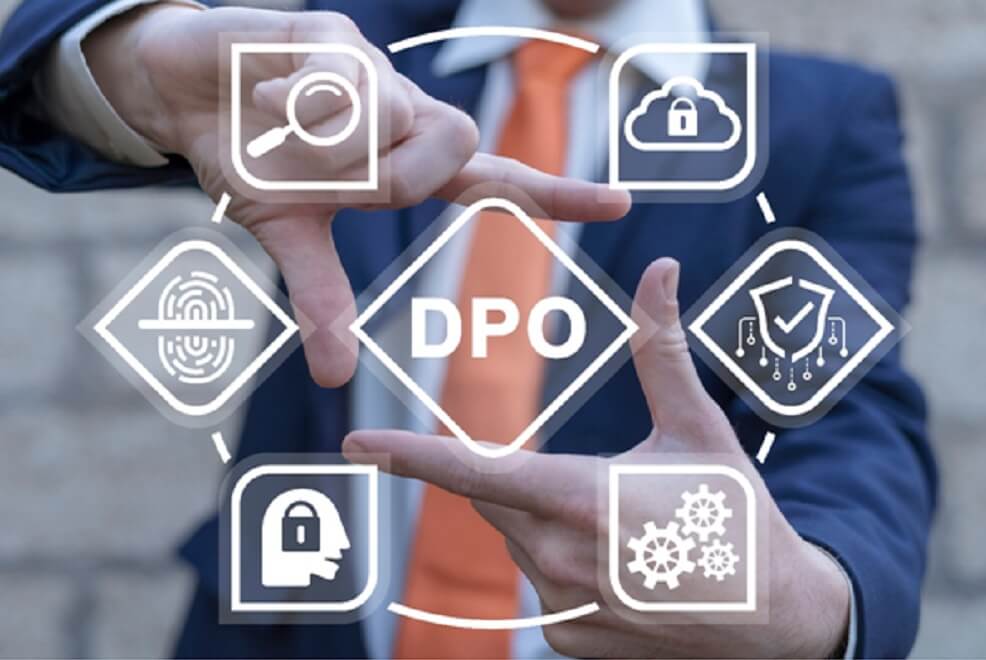5 Essential Tips for GDPR Compliance for SMEs
In 2024, compliance with the General Data Protection Regulation (GDPR) has become more crucial than ever for small and medium-sized businesses (SMBs). With increasing penalties for non-compliance and a growing focus on personal data protection, SMEs must ensure they meet the standards set by the GDPR. Ignoring these obligations can not only result in stiff fines, but also damage reputation and customer trust.
The goal of this blog is to provide SMEs with five practical, actionable tips for staying GDPR compliant. Rather than rehash the GDPR basics already covered in previous articles, we'll focus on specific, actionable steps businesses can implement immediately.

These tips cover key areas such as conducting data audits, implementing privacy policies, staff training, data security, and appointing a Data Protection Officer (DPO). By following these recommendations, SMEs can not only avoid penalties but also strengthen their market position by demonstrating their commitment to personal data protection.
Blog Plan
Data Audit Explained
Conducting a data audit is a fundamental step for any company wishing to comply with the GDPR. This audit provides an accurate picture of the personal data collected, processed, and stored by the company. By identifying this information, SMEs can better understand data flows and vulnerabilities, ensuring that all data management practices meet the standards established by the GDPR. Without this audit, it is impossible to implement effective data protection measures and meet legal requirements in the event of an inspection by the authorities.
Key steps
- Identify the types of data collected : The first step is to catalog all personal data the company collects, whether it is customer information, employee data, or information collected through third parties. This includes names, addresses, phone numbers, email addresses, and any other data that can identify an individual.
- Analyze data collection, storage and processing processes : Once the data has been identified, it is crucial to examine how this data is collected, where it is stored, and how it is processed. This includes evaluating the systems and software used for data management, as well as the security protocols in place.
- Assess potential risks : The audit should also assess the risks associated with each type of data and process. What are the risks of data breaches? Are storage systems secure? Do employees have access to sensitive data without requiring access? These questions help define priorities for improving data security.
Recommended Tools and Resources
To conduct an effective data audit, several tools can be used. Solutions such as GDPR Compliance Tool, Data Protection Impact Assessment (DPIA) tools, and other compliance management software are particularly useful. Some of these tools are free or available at affordable costs, making them accessible to SMEs. Using these tools helps systematize and facilitate the audit, ensuring comprehensive coverage and detailed analysis of all aspects of data management within the company.
2. Implement clear privacy policies
Importance of transparency
Transparency is a key pillar of GDPR compliance. For SMEs, implementing clear and accessible privacy policies is crucial for several reasons. First, it builds customer trust by showing that the company takes the protection of their personal data seriously. Second, well-defined policies help avoid misunderstandings and disputes by clearly informing users about how their data is collected, used, and protected. Finally, transparency is a legal requirement of the GDPR, which requires companies to provide users with understandable and easily accessible information about their personal data practices.
Essential elements of a privacy policy
- Description of the types of data collected : A privacy policy should begin by detailing the types of personal data collected by the company. This may include information such as names, addresses, emails, phone numbers, payment information, and any other data that can identify an individual.
- Purpose of data collection and processing : It is crucial to explain why this data is being collected and how it will be used. This may include reasons such as improving services, personalizing the user experience, or communicating with customers. This section should be specific and avoid vague terms so that users clearly understand the purposes of data collection.
- User Rights : Users must be informed of their rights regarding personal data, such as the right to access, rectify, delete, and object to the processing of data. The policy must explain how users can exercise these rights and provide contact details or forms necessary to facilitate these requests.
Examples of good practices
For SMEs, it's helpful to look at existing privacy policy templates that are well-written and tailored to their needs. For example, templates offered by organizations like the CNIL (Commission Nationale de l'Informatique et des Libertés) in France, or other data protection authorities, can serve as a solid foundation. It's also possible to consult the privacy policies of larger companies that are recognized for their exemplary compliance. By adapting these templates to the specifics of their business, SMEs can ensure a comprehensive and GDPR-compliant privacy policy.
3. Raise awareness and train staff
Role of training
Training staff is a crucial step in ensuring GDPR compliance within SMEs. Employees are often on the front lines when it comes to handling personal data, and their understanding of legal obligations and best practices can make all the difference. Proper training helps minimize the risk of human error, improve data management, and strengthen the company's overall security. Furthermore, by educating employees about data protection issues, the company demonstrates its commitment to privacy and security, which can strengthen the trust of customers and partners.
Training themes
- GDPR Fundamental Principles Training should begin with an introduction to the basic concepts of GDPR, including individual rights, corporate responsibilities, and penalties for non-compliance. This allows employees to understand the legal framework within which they operate and the importance of compliance.
- Internal data management procedures : It is essential that employees are aware of the specific procedures the company has in place for handling personal data. This includes how data should be collected, stored, and shared, as well as the protocols for ensuring its security. A good understanding of these procedures helps prevent data breaches and ensure effective management.
- Security Incident Management : Employees must be trained to recognize and respond effectively to security incidents, such as data breaches. This includes knowing what steps to take in the event of an incident, who to contact, and what steps to take to limit damage. A prompt and appropriate response can significantly reduce the consequences of a security incident.
Training methods
To be effective, training must be tailored to the specific needs of employees and the company. The following methods can be used:
- Workshops : In-person workshops allow you to interact directly with trainers, ask questions and participate in group discussions.
- E-learning : Online training modules offer flexibility and allow employees to learn at their own pace, which is particularly useful for SMEs with geographically dispersed teams.
- Internal training documents : Providing guides, manuals, and how-to sheets provides employees with reference resources they can consult at any time.
By combining these different methods, SMEs can ensure comprehensive and ongoing training for their staff, thus ensuring better GDPR compliance.
4. Implement appropriate security measures
Data security
Data breach protection is essential to ensure GDPR compliance. Violations can result in severe financial penalties and damage to a company's reputation. For SMEs, it is crucial to implement robust security measures to protect the personal data of customers and employees. Good data security reduces the risk of cyberattacks, data loss, and sensitive information leaks, ensuring data confidentiality and integrity.
Technical and organizational measures
- Data encryption : Encryption is an essential security measure for protecting sensitive data. By encrypting data both in transit and at rest, SMEs can ensure that information is unreadable to any unauthorized person in the event of unauthorized access. Using strong encryption protocols, such as AES-256, provides effective protection against cyberattacks.
- Access and ID management : It is crucial to control who has access to personal data within the company. Access management involves defining clear authorization levels and ensuring that only people who need access to the data for their work can do so. Using unique identifiers and implementing multi-factor authentication (MFA) systems strengthens security by making unauthorized access more difficult.
- Incident Response Plan : SMEs must have a well-defined incident response plan to respond quickly and effectively in the event of a data breach. This plan should include procedures for detecting and assessing incidents, notifying the appropriate authorities and affected individuals, and taking corrective actions to minimize impacts and prevent future incidents. Regularly testing this plan ensures that it will be effective in real-life situations.
Recommended tools and technologies
To implement these security measures, SMEs can use various tools and technologies adapted to their needs and budget. For example:
- Security software : Solutions like Bitdefender, Kaspersky Small Office Security or Sophos Intercept X offer comprehensive protection against malware, ransomware and other cyber threats.
- Identity and Access Management (IAM) : Tools like Okta or Microsoft Azure Active Directory allow you to manage access and permissions centrally and securely.
- Encryption solutions : Tools like VeraCrypt or BitLocker (for Windows) offer strong encryption options to protect sensitive data.
By adopting these measures and tools, SMEs can strengthen their security posture and ensure the protection of personal data in accordance with GDPR requirements.
5. Appoint a Data Protection Officer (DPO)
Role of the DPO
The Data Protection Officer (DPO) plays a key role in GDPR compliance. For SMEs, appointing a DPO is necessary when processing personal data is central to their business, particularly if they process sensitive data on a large scale or systematically and regularly monitor individuals. While not all SMEs are required to appoint a DPO, it is strongly recommended to appoint one to ensure constant monitoring of legal obligations and effective personal data management.
Responsibilities of the DPO
- GDPR Compliance Monitoring : The DPO is responsible for ensuring that the company complies with all GDPR requirements. This includes assessing current data management practices, implementing necessary corrective measures, and conducting regular audits to ensure ongoing compliance.
- Point of contact with data protection authorities : The DPO serves as the main point of contact between the company and data protection authorities. He or she is responsible for managing communications with these authorities, particularly in the event of a data breach, and for cooperating with them during inspections or investigations.
- Internal training and awareness : The DPO must train and raise awareness among employees about GDPR requirements and data management best practices. This includes implementing training programs, disseminating educational resources, and promoting a data protection culture within the company.
Options for SMEs
SMEs have two main options to fulfill this crucial role:
- Internalize the role : An SME can appoint an internal employee as DPO. This person must have in-depth knowledge of the GDPR and data protection skills. The advantage is that this DPO already knows the company and can be more easily integrated into internal processes.
- Use an external DPO : For SMEs that lack the necessary resources or expertise in-house, it is possible to hire an external DPO. An external DPO is often a consultant or firm specializing in GDPR compliance. This option can be more expensive, but it offers the advantage of specialized expertise and practical experience in managing GDPR compliance.
By appointing a DPO, SMEs can better manage legal obligations and risks associated with the protection of personal data, thus ensuring effective and ongoing compliance with the GDPR.
Conclusion
Summary of advice
To ensure GDPR compliance, SMEs must follow specific and practical steps. We've explored five key tips to help you achieve this effectively:
- Conduct a data audit : Identify the types of data collected, analyze processing processes and assess risks to ensure appropriate management of personal data.
- Implement clear privacy policies : Provide transparent and accessible information on data collection and use, as well as user rights.
- Raise awareness and train staff : Train employees on GDPR principles, internal procedures and security incident management to prevent human error.
- Implement appropriate security measures : Protect data through encryption, rigorous access management and an incident response plan to reduce the risk of breaches.
- Appoint a Data Protection Officer (DPO) : Appoint a DPO to oversee compliance, manage relations with authorities and train staff.
Implementing these tips is essential for any SMB looking to ensure GDPR compliance. By adopting these measures, you'll not only avoid hefty financial penalties, but you'll also strengthen the trust of your customers and partners. Protecting personal data has become a criterion of trust and reputation for businesses. Start implementing these recommendations today to ensure the security and confidentiality of the information you manage.
Frequently Asked Questions
Conducting a data audit provides insight into exactly what personal data is collected, how it is processed, and where it is stored. This helps identify weaknesses and implement corrective measures to ensure all data management practices comply with GDPR requirements. Without this audit, it is difficult to ensure that all data is handled securely and compliantly.
A clear privacy policy should include a description of the types of data collected, the purposes of data collection and processing, and user rights (access, rectification, deletion, etc.). It should be written in a way that is understandable and easily accessible to all users, which strengthens transparency and customer trust.
To effectively train staff, it's important to cover GDPR fundamentals, internal data management procedures, and security incident management. Using a variety of training methods, such as workshops, e-learning modules, and internal training materials, helps ensure all employees understand and apply data protection best practices.
Essential security measures include data encryption, strict access and credential management, and a security incident response plan. These measures help protect data from unauthorized access, loss, and breaches, ensuring its confidentiality and integrity.
An SME must appoint a DPO if it processes sensitive data on a large scale or systematically and regularly monitors individuals. While not always mandatory, appointing a DPO is recommended to ensure consistent compliance with legal obligations and effective personal data management. The DPO can be a trained internal employee or an external consultant specializing in GDPR compliance.








